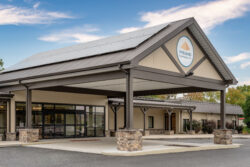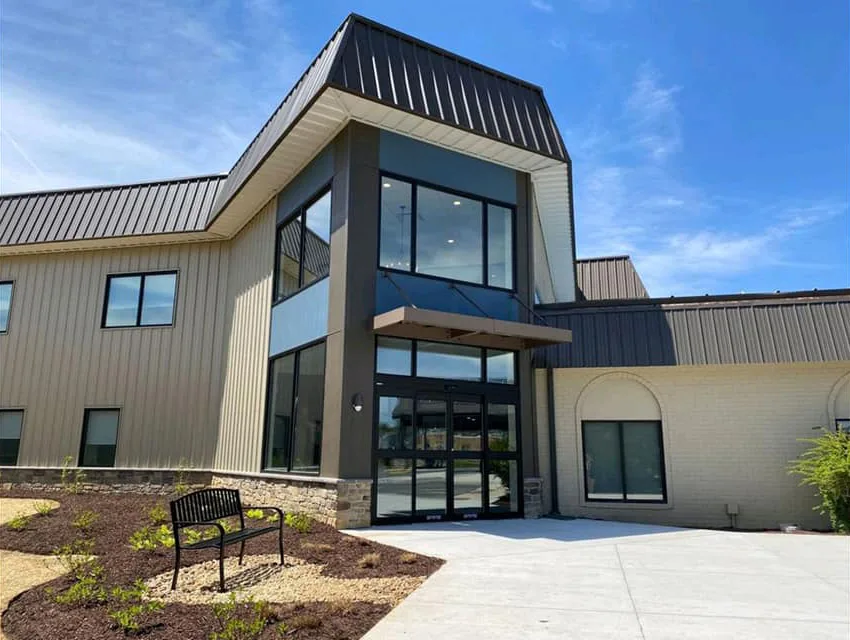What Are the Benefits of Extended Addiction Programs in West Virginia?

Looking for an addiction treatment facility can feel overwhelming – how do you know a facility is going to meet all your needs? What if they fail to ask your personal goals and you cannot make treatment your own? What happens if you complete inpatient rehab but are left without any aftercare plan?
Questions like these, and the countless others you may have, are entirely valid and should be considered when looking for somewhere to begin addiction detox and recovery. You should also consider the levels of care the facility offers and ensure the one you need is one the facility is equipped to provide.
What are the levels of care?
Many rehab centers employ a continuum of care, where clients enter treatment at the level of care that aligns with their needs. The intention is that as clients progress through recovery, they can move to a different level as their treatment needs change.
Levels of care generally refer to the intensity of services required to diagnose and treat a condition. The American Society of Addiction Medicine (ASAM) has established five levels in a continuum of care for substance abuse treatment:
- Level 4 — Medically Managed Intensive Inpatient (Withdrawal Management in a hospital)
- Level 3.7WM — Withdrawal Management in a residential setting
- Level 3 — Residential/inpatient services
- Level 2 — Intensive outpatient/partial hospitalization services
- Level 1 — Outpatient services
- Level 0.5 — Early intervention services
Each level of care is intended to move the client into a less intensive level based on progress made in addiction recovery. Here, we want to examine residential/extended treatment services and why clients may pursue this level to meet their needs.
Addiction treatment extended care program
An extended care program is precisely what it sounds like – a treatment program that follows detox and is longer than traditional stays. Most residential treatment programs offer thirty, sixty or ninety-day programs where you can reside at the treatment facility. Still, they then are directed into outpatient/aftercare if you and your therapist determine you are ready.
With an extended care program, however, you can remain in the treatment program but with less around-the-clock supervision and a greater ability to have freedom of movement as you slowly test your limits in “everyday life.”
Why should I consider extended treatment?
People enter into addiction recovery for a variety of personal reasons. Still, one of the most common is wanting to be free of the bonds of drug and alcohol addiction for the sake of starting their life over from a place of health and mental freedom.
To do this, several clients consider the benefits of extended treatment.
Other forms of treatment have proven ineffective
If you seek extended treatment options, you may have tried other modalities, including individual counseling and short-term rehab, but have not succeeded. This is not something to be ashamed of because recovery is not one-size-fits-all.
You may need to be in the controlled environment of an extended care facility to get you over the initial hurdle of battling drug or alcohol addiction. Extended care options can provide this to clients who need a secure place to recover for longer.
You do not have a home environment conducive to recovery
If you do not have a safe home environment or if it is one where you feel the stress or pressure from roommates or family to use, it is not a wise decision to test your resilience and recover in such a place. Extended care allows you to live in the treatment facility for a long period until you have the tools you need to return home.
The chances of relapse are lowered
The longer you can meet regularly with your counselor, attend group therapy sessions and become rooted in healing habits to the mind and body, the less likely you will be tempted to return to unhealthy habits when you leave the extended care facility. Residential treatment has been proven to lower the risk of relapse and provide a greater chance of sustained recovery.
You have a longer time to make recovery your own
When you are living in an extended care facility, you have the freedom to stay for as long as you need, meaning you have the opportunity to make your recovery entirely your own. This strengthens your recovery immensely because those who remain in treatment longer can become very solid in a sober lifestyle before “testing it out” outside the facility. This is another one of the reasons why relapse risk is lower for those in extended care.
Ready to get in touch with a treatment facility?
For our West Virginia residents or anyone in the surrounding states, Pyramid Healthcare is pleased to offer extended treatment through our facility in Kearneysville, WV. With an accredited staff, varying levels of care, and the opportunity for extended treatment, Kearneryville is proud to provide all your treatment needs.
To get in touch with our staff in West Virginia and begin your extended stay, reach out to Pyramid Healthcare anytime to learn more.










